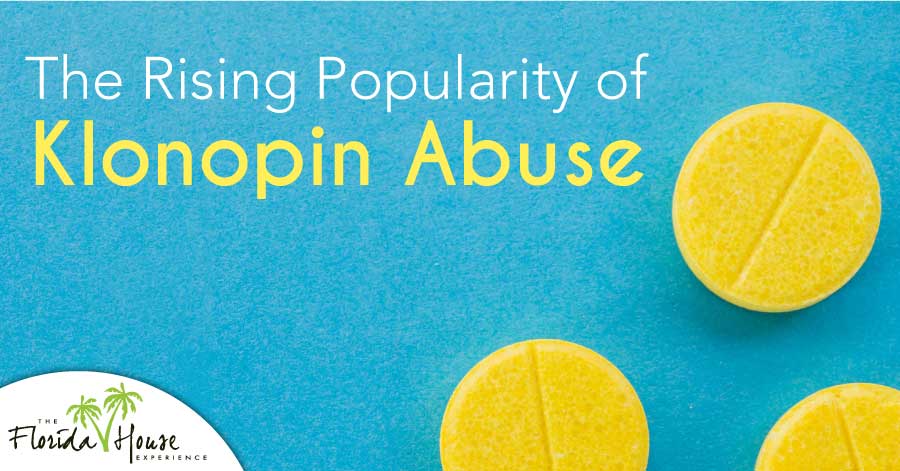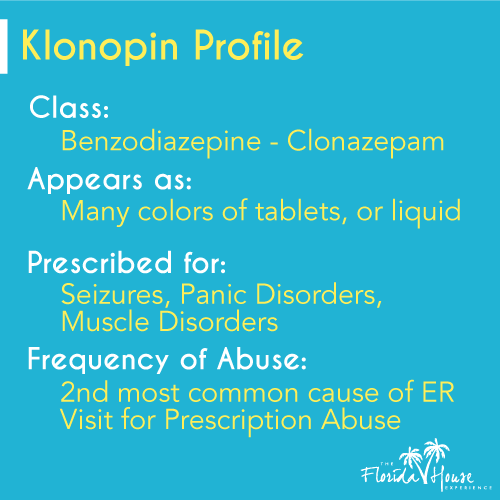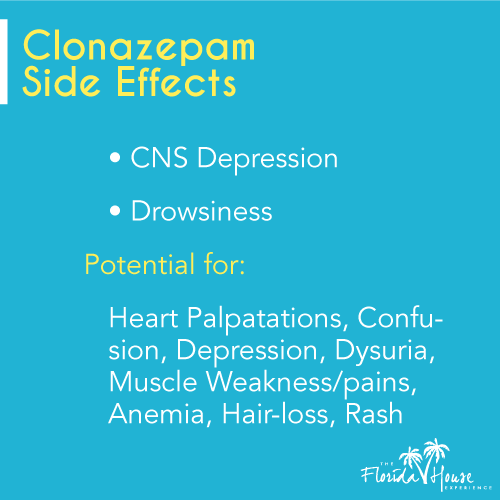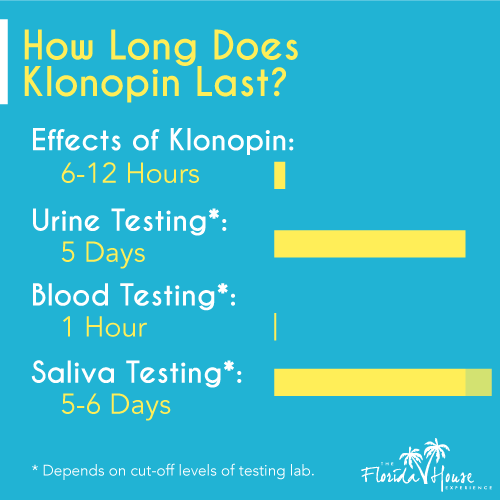
It’s understandable that conversations about prescription drugs turn quickly into discussions about highly addictive opioid pain relievers like OxyContin, Percocet, Vicodin and other drugs whose usage numbers have skyrocketed in the past decade.
When this occurs, though, we’re overlooking another very dangerous trend that’s been growing, slower than opioid abuse, but still very noticeably: abuse of prescription benzodiazepines or “benzos.”
Xanax abuse and addiction is a more common topic of discussion that gets some coverage, but there’s one member of the benzodiazepine family that is often overlooked: Klonopin.
In this article, we’ll discuss benzos, including what they are and the danger they present, as well as why Klonopin is so popular, addictive and potentially deadly.
What Are Benzos?
 Benzodiazepines were first used in the 1960s as a replacement for barbiturates — heavy sedative drugs that were highly addictive. The appeal to use benzos instead was based on the theory that they had the same effect without the addictive qualities. This turned out to be false when benzos were actually prescribed to patients with anxiety and panic disorders, but until opiates started to be widely prescribed, benzos were the “it” drug on the market.
Benzodiazepines were first used in the 1960s as a replacement for barbiturates — heavy sedative drugs that were highly addictive. The appeal to use benzos instead was based on the theory that they had the same effect without the addictive qualities. This turned out to be false when benzos were actually prescribed to patients with anxiety and panic disorders, but until opiates started to be widely prescribed, benzos were the “it” drug on the market.
Benzos are sedatives that bind to GABA receptors in the brain, stimulating the release of dopamine, a chemical in the brain that brings on feelings of pleasure in the user. We now know that every substance that causes dopamine release is addictive for that very reason, but at the time, benzos were thought to be harmless compared to their predecessors in the world of therapeutic drugs. Today, we’re fully aware of the danger.
Benzos Are Involved in a Surprising Number of Overdoses
For example, public health officials have reported an increase in overdose cases related to prescription benzos: In 2013, around 30 percent of overdose deaths were the result of abusing benzos. Another study found that in one year, nearly 20 percent of opioid overdose deaths also involved benzodiazepine use.
Prescribing Rates Are Increasing, Too
According to NIDA, between 1996 and 2013, the number of people who filled prescriptions for one or more benzodiazepine medications increased by 67 percent. While not nearly the increase was seen in opioid prescribing, the fact that we’re learning more and more about the dangers of these drugs while watching prescription rates rising year after year is alarming from the standpoint of those in the addiction treatment community.
What Is Klonopin?

The drug’s popularity comes from the fact that medical professionals often think of it as Xanax Lite — something to give to patients of all ages when they complain of the symptoms of anxiety.
Why Is It So Dangerous?
Klonopin is dangerous partly due to the way society, especially in the United States, tends to underestimate it. The U.S. Code puts Klonopin, along with other benzos, in Schedule IV of the code that stratifies drugs by the danger to society. Language in the Controlled Substances Act (CSA) says that Schedule IV substances are subject to “a relatively low risk” of the user becoming addicted. Schedule IV is actually the second-lowest category of risk. The problem with this, as we know, is that benzos like Klonopin are much more dangerous than their location on the CSA Schedule would suggest.
Secondly, as mentioned, it’s easy to get a prescription for it, since many primary care physicians and mental health specialists see Klonopin as a precursor to Valium and Xanax. If a patient complains of the symptoms of anxiety, Klonopin can be prescribed almost as a knee-jerk, and with regulatory focus on opioid prescribing habits, other dangerous drugs can be overlooked by the people in charge of making policy governing public health matters.
This is especially significant when we consider the rise in anxiety cases in the U.S. in recent years, especially among children and teens. Medical News Today reports that estimates of Americans with generalized anxiety disorder is about 3 percent of the total population.
Examples of the Dangers of Klonopin

Some of the highest profile celebrity deaths of the last few decades, a list that includes Michael Jackson, Brittany Murphy, Whitney Houston, Amy Winehouse and more have been spurred by abuse of anti-anxiety medications like Klonopin, in tandem with another drug or addictive substance, according to The Star.
Legendary Fleetwood Mac member Stevie Nicks hasn’t been shy about her struggles with benzos, especially Klonopin, even going so far as to open up in a self-authored piece in Newsweek in 2011. Nicks says that she was given Klonopin to help wean her off cocaine, and she didn’t even realize she was becoming addicted: “What started happening was that if I didn’t take it, my hands started to shake. I felt like I had a neurological disease or Parkinson’s.”
This is one of the factors that makes Klonopin different, and arguably more dangerous, than Valium or Xanax: While the other two produce a very noticeable high, addiction to Klonopin can take hold before the user really realizes that it’s happening. Once the user is addicted to Klonopin, it’s as destructive as many other drugs.
What We Can Do About It
Raising awareness about the increase in benzo abuse is the first step towards raising awareness about the dangers of Klonopin addiction. When people don’t realize that, for example, these drugs are more dangerous than their place on the CSA schedule suggests or that benzos are leading to overdose deaths either by themselves or in combination with other substances at only a slightly lower rate than the opioids everyone is highly aware of, the medical community and the treatment community can collaborate to give this growing public health crisis the attention it deserves.
If you or a loved one is misusing Klonopin, you may be at risk to form a potentially dangerous addiction. For help, contact FHE Health today.






